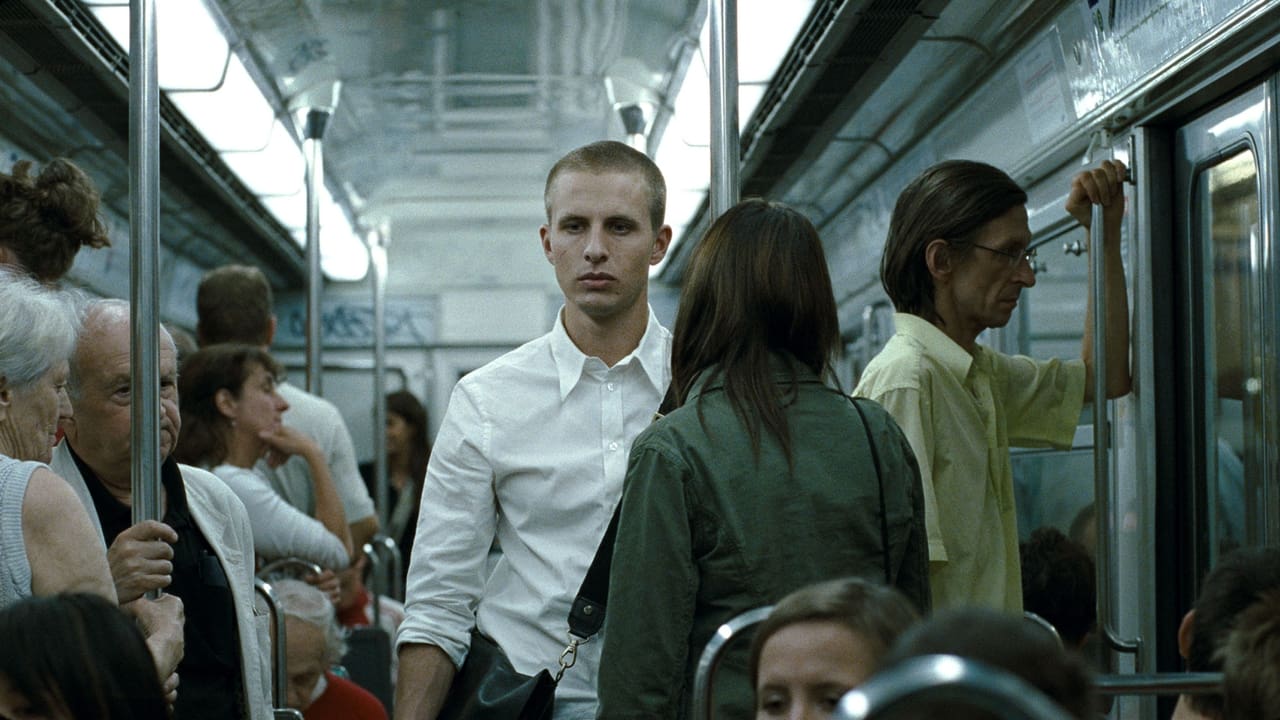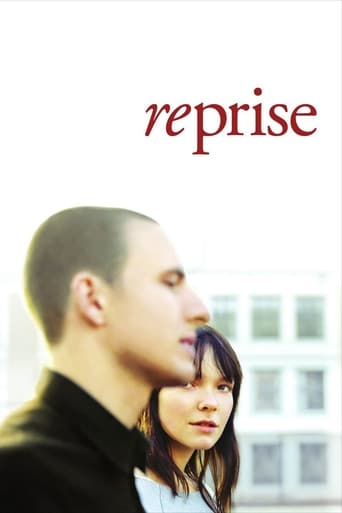

I have watched many many movies, this movie is so boring! It failed to catch my attention. Whenever I watch a boring movie like this, I just let it play on the TV and read something else at the same time. Even though I don't speak that language, I don't need to read the subtitles all the time.This movie is definitely overrated. I have never seen a movie from Norway before. And I checked it out from the library because it has over 7 rating! I thought that it must be good, but I was totally wrong. I usually try to watch all the things on the "special features", too, but I didn't watch all of them for this DVD.This movie is not coherent. It jumps from places to places. And it is also confusing. For example, one of the guy was riding a bike, and he was counting from 10 to zero. Then all of sudden, after he counted to zero, he didn't even park his bike, he was already inside a room? I don't know why he keeps counting at the end of the movie.
... View MoreThis film - especially toward the beginning - contains intermittent 3rd person narrative a la Amelie, but with none of the quirkiness or art. Moreover, these lighthearted voice-over segments seemed rather out of place with the seriousness of the subject matter. Maybe this was an homage to Bergman or some other cinematic reference but the result is i found it purely pretentious. i don't recommend this film, which i found boring apart from glimpses of Norway and Norwegians and the sideline about the reclusive writer stalked by the 2 main characters (i did find the scene on the bench pretty amusing but somehow the beauty and humor of these 2 writing geeks going to such lengths to capture proof of their prey just fell flat). Finally, like others commenting here, i found it difficult to keep track of what was going on or what had happened.
... View MoreBefore I saw 'Reprise', I was warned by somebody who hated it that I would probably hate it as well. I am soooo glad I didn't listen to their (so called)voice of reason & went by my own gut feeling. Reprise is a tale of two school chums who are both aspiring writers who have sent manuscripts of their most recent works to a publisher,expecting "who knows what". Most of this film is a tale of modern Norwegian youth, dealing with the usual glut of existential angst that Gen Y'ers seem to deal with (partying,girlfriends,trying to deal with growing up,etc.). What I really appreciated was the fact that the film doesn't sink to the usual American realm of bad taste (endless jokes concerning farts,vomit,sexual dysfunction,boozing,doping,and who knows what else Seth Rogan can come up with). This film probably won't be of much relevance to those over the age of 40 (especially the choice of music,which tends to stick to music from the mid to late 1990's until now), but if you can get beyond that, Reprise will be a small,quiet surprise for open minded souls looking for a breath of fresh air from the glut of the usual films from the American sewer.
... View MoreSince I saw a movie that i could relate to as much. In some ways it really felt like my life with my group of friends when I was longer. I truly enjoyed that movie, there is a feeling to it and the cinematography is excellent. The actors were amazing. I went to look at their profile and it seems that most of them don't have a lot of experience but it doesn't show, on the contrary, there is a freshness to their performance, they are quite good. The Soundtrack is amazing, from Joy Division to New Order and other cool music that unfortunately I don't know yet about. Totally what I needed to watch in the cold snow storm coming down right now in Montréal. See it!
... View More